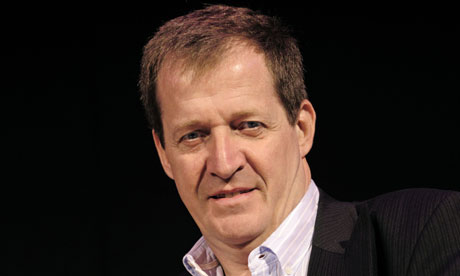
The Prince is in fashion today. Business gurus write books on "Machiavelli for managers". Jonathan Powell, Tony Blair's former chief of staff, wrote a thinly disguised memoir under the title The New Machiavelli: How to Wield Power in the Modern World. Granta Books last year published a collection of essays on gardening by famous authors entitled, bizarrely, Machiavelli's Lawn.
The cynic will point out that this is simply the way of the publishing world. We won't read A la recherche du temps perdu today but we will pick up a copy of How Proust Can Change Your Life or How Xenophon Can Improve Your Waterskiing or some such masterpiece. There is something in this. Machiavelli is a good brand: clever-sounding, a bit sinister and, above all, well-known. Why wouldn't a publisher capitalise?
But there is also more to it. Machiavelli genuinely does speak to us today. Some of The Prince's observations are painfully acute. The advice to a political leader that "there is nothing more important than appearing to be religious", could well serve as a motto for US politics. Closer to home, Machiavelli's remarks on the art of political appearance could be about the rise of New Labour in the 90s. So well does he seem to understand the art of what we now call spin that he sometimes sounds like a Florentine Alastair Campbell. "A man who becomes king… must make it an absolute priority to win over the affection of the common people… [he must] act in such a way that everything he does give an impression of greatness, spirit, seriousness and strength."
It's not just political culture that he manages to skewer. It's policy too. Would that Anglo-American leaders had read The Prince a decade ago as they prepared for war in Iraq, with its words on the difficulties of keeping newly "liberated" territory: "Nothing is harder to organise, more likely to fail, or more dangerous to see through, than the introduction of a new system of government," in a newly won country. "As soon as the opponents of the new system see a chance, they'll go on the offensive with the determination of an embattled faction."
Nor is it only political culture that The Prince eviscerates. Passing judgement on "the people" today is like criticising the church in Machiavelli's time: you can do it, but it's best to do it quietly and among like-minded friends. Yet, however, much we genuflect at the altar of democracy and dutifully intone vox populi, vox dei, most people recognise that Churchill was on to something when he said that the best argument against democracy is a five-minute conversation with the average voter. The Prince permits about as many illusions concerning "the people" as it does about their leaders.
Machiavelli understands that when you are a ruler "everyone gets to see you but hardly anyone deals with you directly," (and if that were true in 1513 how much truer is it today?) "The world is all crowd," he says. But given that "the crowd is won over by appearances", appealing to the people becomes a way of cheapening rather than deepening political discourse. If you want a reason for spin, look in the mirror.
The Prince remains highly relevant not because Machiavelli was some political Nostradamus, anticipating the corruptions of modern politics. Rather, its power comes from the fact that, for all its political, intellectual, ecclesiastical, and personal context, it is finally about a (the?) question of the human condition: are we creatures of justice, morality and authority, or of force, strength and power? Do we live in the land of right or the land of might?
Although The Prince is famed for baldly proclaiming might over right, ultimately the book is ambivalent. "Victories are never so decisive that the winner can override every principle, justice in particular," Machiavelli writes at one point. Some might argue this is simply a verbal relic, like our talk of "sunrise" and "sunset", "vacant metaphors, eroded figures of speech, [which] inhabit our vocabulary and grammar," as George Steiner has described them.
But Machiavelli is too careful a writer for that to be convincing and, in any case, The Prince is too attached to the idea of justice for it to be mere accident. Prefaced as a plea for Lorenzo de' Medici to treat the author as he deserves, it ends with an appeal for the great man to free Italy from its invaders, in which Machiavelli proclaims enthusiastically "justice is definitely on our side". For all its willingness to look a world of brute force in the face, The Prince cannot shake off the sense that somewhere, lurking, slightly out of sight, is the faint spectre of a just world.
• Follow Comment is free on Twitter @commentisfree

